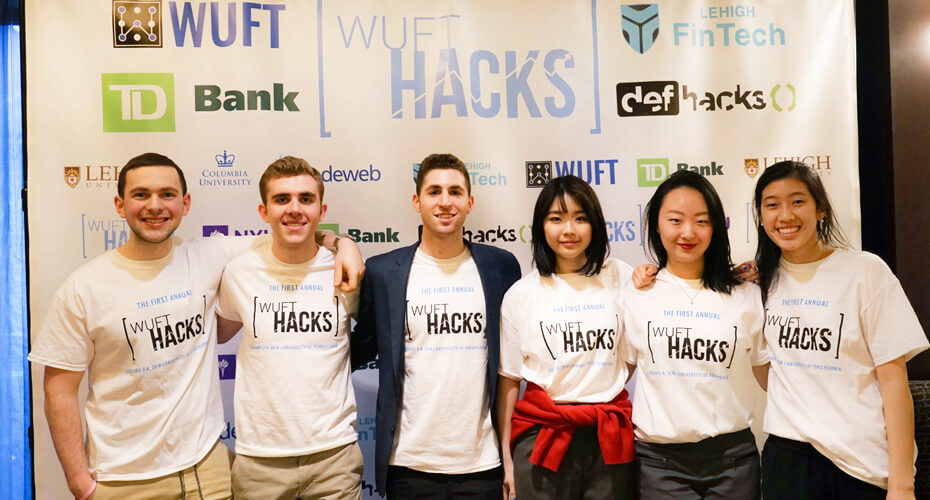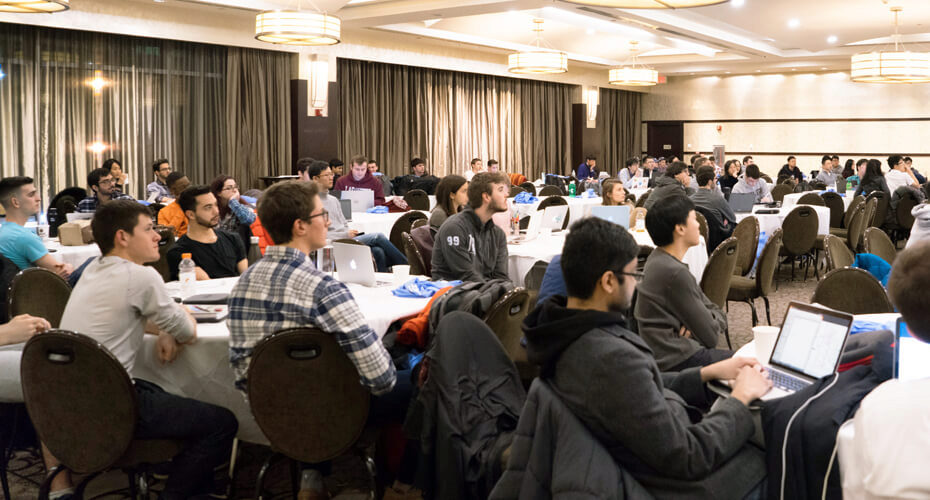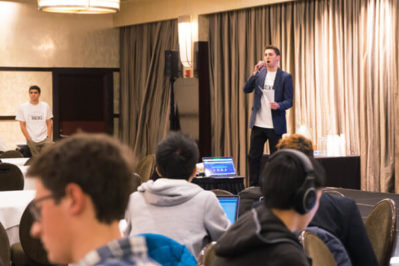
The story began last year when a few Penn undergraduates noticed there was no avenue for undergraduates interested in fintech to get together and discuss innovation in finance. To fill this gap, three students (Cole Pergament, Founder and President of the Wharton Undergraduate FinTech Group [WUFT], Matthew Swickle, its Executive VP, and Evan Hochhauser) got together to make a plan. Fast forward to February 2018, WUFT hosted Penn’s first all-undergraduate fintech hackathon: WUFT Hacks 2018.
In Summer 2017, when WUFT Hacks was first on the drawing board, its creators decided to take a holistic approach. So they put together a planning team consisting of Lehigh FinTech Group, Wharton MBA FinTech, and Def Hacks Inc. They also thought that an inter-collegiate atmosphere would add diversity, depth, and insight to the competition, so they brought in students representing Cornell, Lehigh University, Columbia, Harvard and New York University.
Dean Zimberg, Founder and President of Lehigh FinTech Group, spoke about the planning process: “It was important to give students the tools to cultivate innovation themselves. We built WUFT Hacks through strategic planning over the course of months with this premise in mind.”
Though it was WUFT’s first ever hackathon, what they lacked in experience they made up in ambition. The club was able to offer over $10,000 in sponsorship prizes from TD Bank, Tradeweb, and Virtusa, and the hackathon received over 600 registrants. Of these, 150 were selected to collaborate and compete as teams to submit a deliverable within the narrow 36-hour time frame. Around 30 students came away with a share in the prize money.

WUFT Hacks’ two prompts were simple, succinct, and focused on multi-faceted challenges. They gave competing students the opportunity to learn about innovation within big data and payment solutions, both on the client and employee facing sides:
- Payments/Product: How should TD Bank organize its money movement solutions in a way that resonates with customers?
- Data & Customer Insights: How should TD Bank empower its employees to have meaningful conversations with customers?
Participants received tools such as anonymized data sets and APIs that mimicked key banking functionality, integrating data from Facebook, LinkedIn, and Twitter. Students used a variety of design and prototyping platforms to complete their projects.
The competition also offered unique learning opportunities. Many of the sponsors provided mentors to help guide the students and assist with hacking questions and conducted workshops for participants to attend throughout the weekend. TD Bank hosted a highly popular and informative fintech workshop. Additionally, Virtusa and Virtusa xLabs each hosted a workshop on Friday and Saturday of the competition.
“As a company, we greatly enjoyed the ability to provide students with a meaningful experience and lend guidance,” said John Thomas, EVP of Payments and Insights Strategy at TD Bank.

On a broad scale, the fintech industry lends itself to non-traditionalists. So in coordinating this event, WUFT wanted the hackathon to mirror the larger field of financial technology. The average team at WUFT Hacks had varied backgrounds, experiences, and skills, with members ranging from graphic designers to computer scientists to businessmen.
Pergament remarked on the competition, “This intersection of business and technology provided a great outlet for students to live up to their creative potentials and design solutions with real merit.”
Speaking on behalf of the club leaders, he also wrote, “WUFT believes fintech is a promising field that craves the brightest, most entrepreneurial students to create technologies that will disrupt our financial world. Through collaborative work and cutting-edge technology, we must work to build a smarter economy. The event was a monumental success and we would love to see more events like it appear in the near future. We’re already looking forward to seeing new students and schools at WUFT Hacks 2019.”



